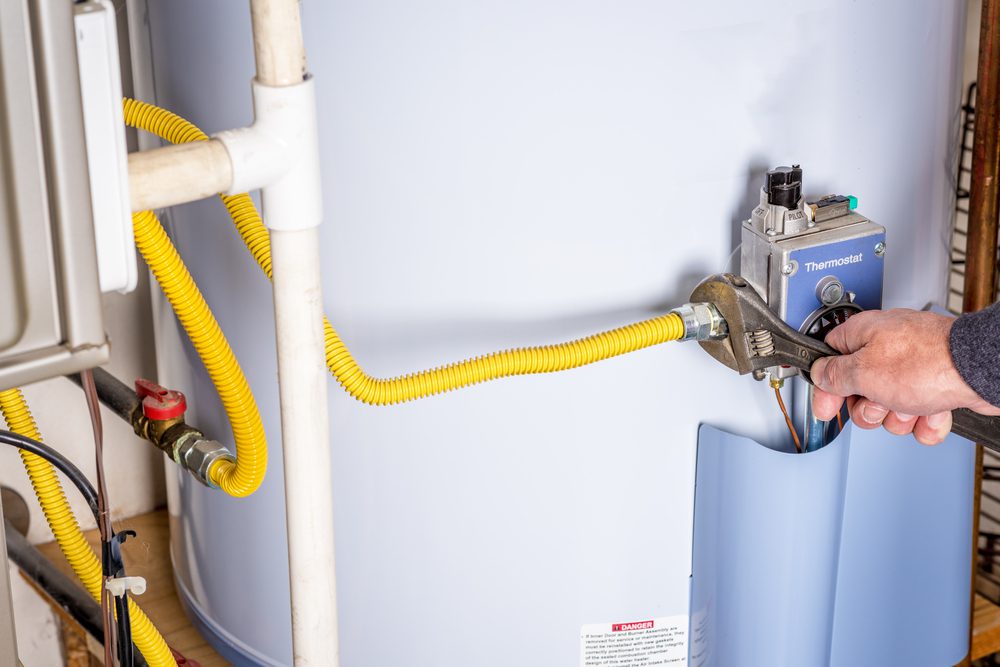The content listed below involving Common Problems with Your Home Water Heater is truly enjoyable. Don't bypass it.

Imagine starting your day without your regular warm shower. That currently sets a poor tone for the remainder of your day.
Every house needs a dependable water heater, yet just a couple of understand just how to handle one. One easy way to maintain your water heater in leading shape is to look for faults frequently and also fix them as quickly as they appear.
Bear in mind to switch off your water heater prior to smelling around for mistakes. These are the hot water heater faults you are probably to encounter.
Water as well warm or as well cool
Every water heater has a thermostat that figures out just how warm the water obtains. If the water entering your residence is too warm regardless of setting a convenient optimum temperature, your thermostat could be malfunctioning.
On the other hand, too cold water may be because of a stopped working thermostat, a damaged circuit, or incorrect gas circulation. For instance, if you utilize a gas water heater with a damaged pilot light, you would certainly obtain cold water, even if the thermostat is in ideal condition. For electrical heating systems, a blown fuse may be the offender.
Not nearly enough warm water
Water heaters can be found in lots of sizes, relying on your hot water needs. If you run out of hot water before everybody has actually had a bath, your hot water heater is too tiny for your family size. You must consider mounting a larger water heater container or choosing a tankless water heater, which occupies much less space as well as is extra resilient.
Odd sounds
There go to least five type of noises you can speak with a hot water heater, yet one of the most usual interpretation is that it's time for the water heater to retire.
To start with, you should be familiar with the regular appears a water heater makes. An electrical heating system might seem different from a gas-powered one.
Standing out or banging noises typically mean there is a piece of sediment in your tanks, and also it's time to clean it out. On the other hand, whistling or hissing audios may just be your valves allowing some pressure off.
Water leakages
Leakages can originate from pipelines, water links, valves, or in the worst-case scenario, the storage tank itself. In time, water will certainly rust the container, as well as locate its way out. If this occurs, you require to change your water heater immediately.
Nonetheless, before your modification your entire container, be sure that all pipelines are in area which each valve works completely. If you still require assistance determining a leak, call your plumber.
Rust-colored water
Rust-colored water means among your water heater elements is worn away. It could be the anode pole, or the container itself. Your plumber will certainly have the ability to identify which it is.
Warm water
Despite exactly how high you established the thermostat, you will not obtain any type of hot water out of a heating unit well past its prime. A water heater's effectiveness might reduce with time.
You will additionally obtain lukewarm water if your pipes have a cross connection. This implies that when you turn on a tap, warm water from the heating unit streams in alongside normal, cold water. A cross link is simple to spot. If your warm water taps still run after closing the water heater valves, you have a cross link.
Discoloured Water
Rust is a significant cause of unclean or discoloured water. Corrosion within the water container or a falling short anode rod can cause this discolouration. The anode rod shields the tank from rusting on the within and ought to be examined yearly. Without a rod or an effectively functioning anode pole, the hot water swiftly wears away inside the tank. Get in touch with a specialist water heater service technician to determine if replacing the anode rod will repair the issue; otherwise, change your hot water heater.
Conclusion
Ideally, your water heater can last ten years before you need a modification. Nevertheless, after the 10-year mark, you might experience any one of these faults much more consistently. At this point, you should add a brand-new hot water heater to your spending plan.
How To Troubleshoot 3 Common Water Heater Problems in Twin Cities
The Water Heater Is Leaking
A leaky cold water inlet valve A loose pipe fitting A leaky temperature and pressure relief valve A corroded anode rod A cracked tank Turn Off Your Water Heater:
Shut off your gas water heater by turning the gas valve on the unit to the “OFF” position. Shut off your electric water by switching its power off at your electrical panel. Look for a two-pole breaker labeled “water heater” and turn it to the “OFF” position. Move the ball valve connected to the water heater to be perpendicular to the piping at a 90° angle. Look for the Leak:
Depending on whether the water is coming from the tank's top or bottom, you’ll want to look for the leak in different locations.
If the leak comes from the top of the tank, carefully look for water escaping from the cold water inlet valve or loose pipe fittings. Rusted hot and cold water valves can have loose connections with the tank, with water leaking out of them.
https://mspplumbingheatingair.com/blog/how-to-troubleshoot-3-common-water-heater-problems
As an enthusiastic person who reads on Water Heater Repair and Troubleshooting, I was thinking sharing that information was a great idea. If you enjoyed our blog entry please make sure you remember to share it. Thank-you for going through it.
Search-end for emergency plumbing.